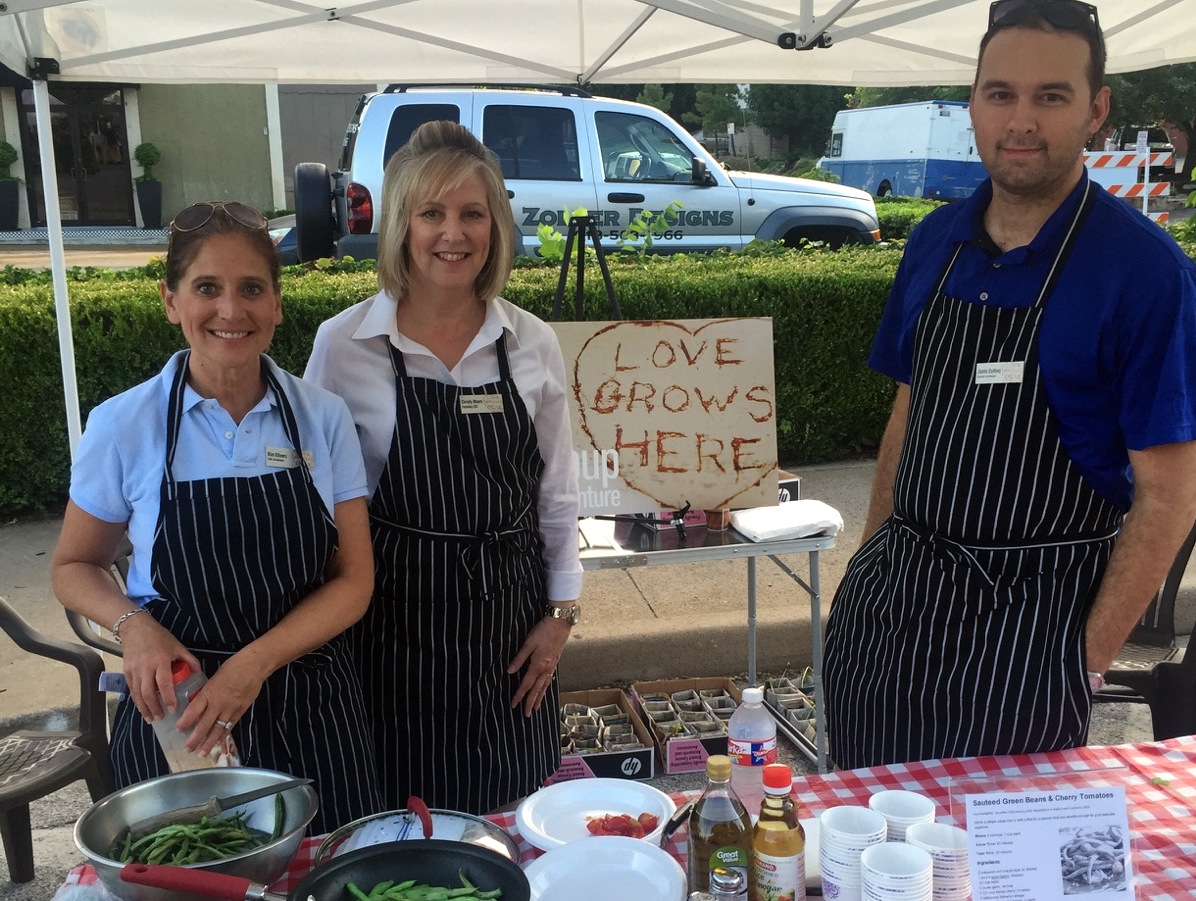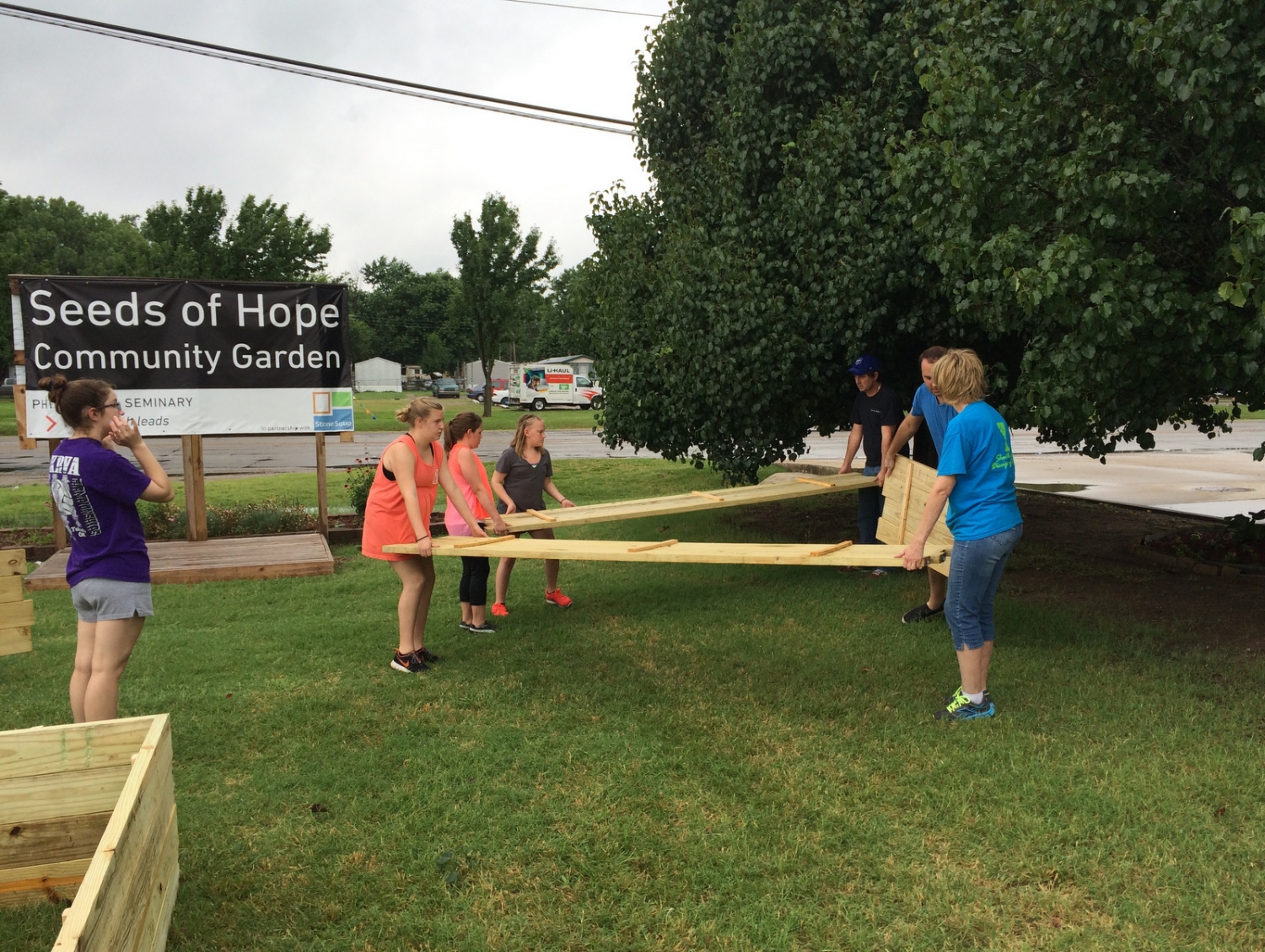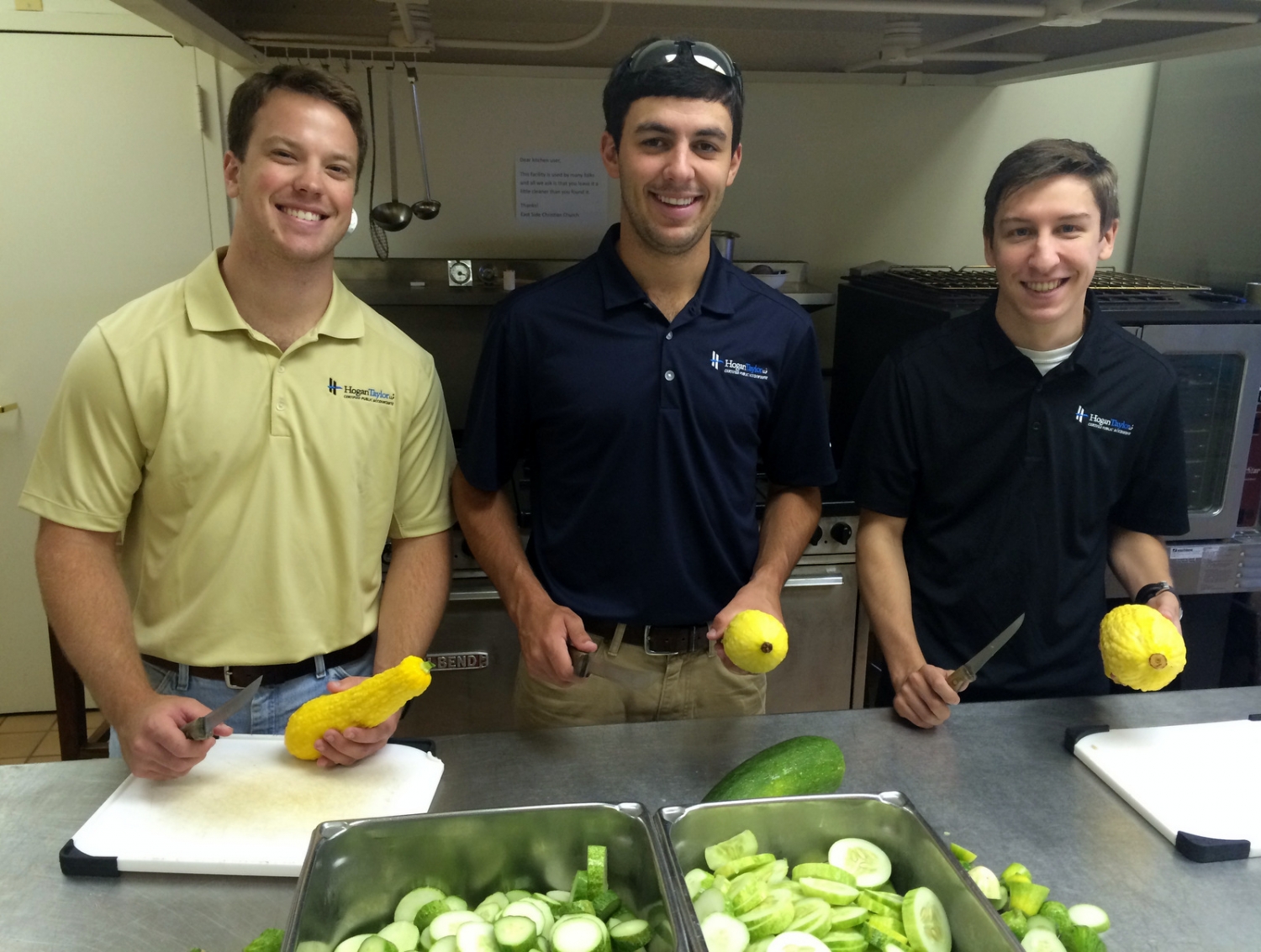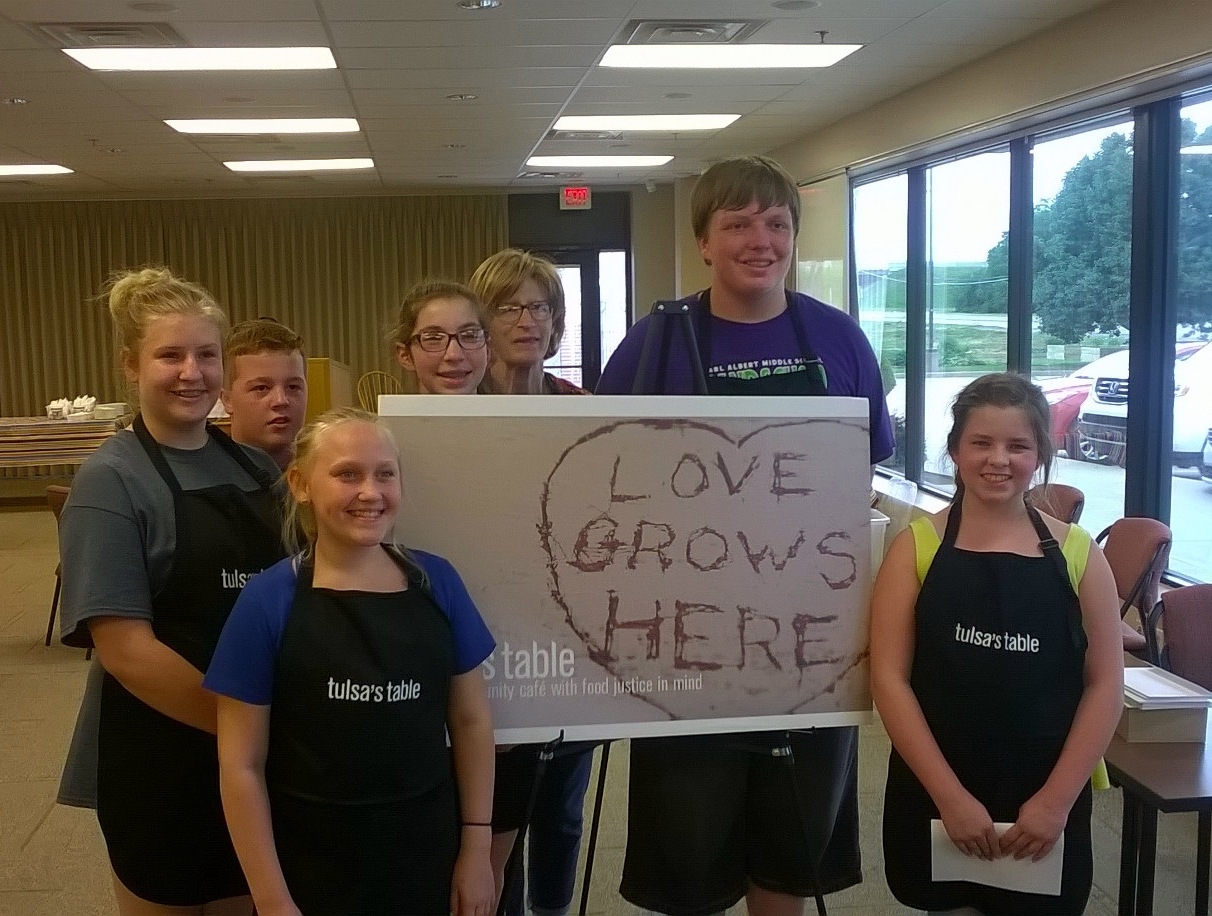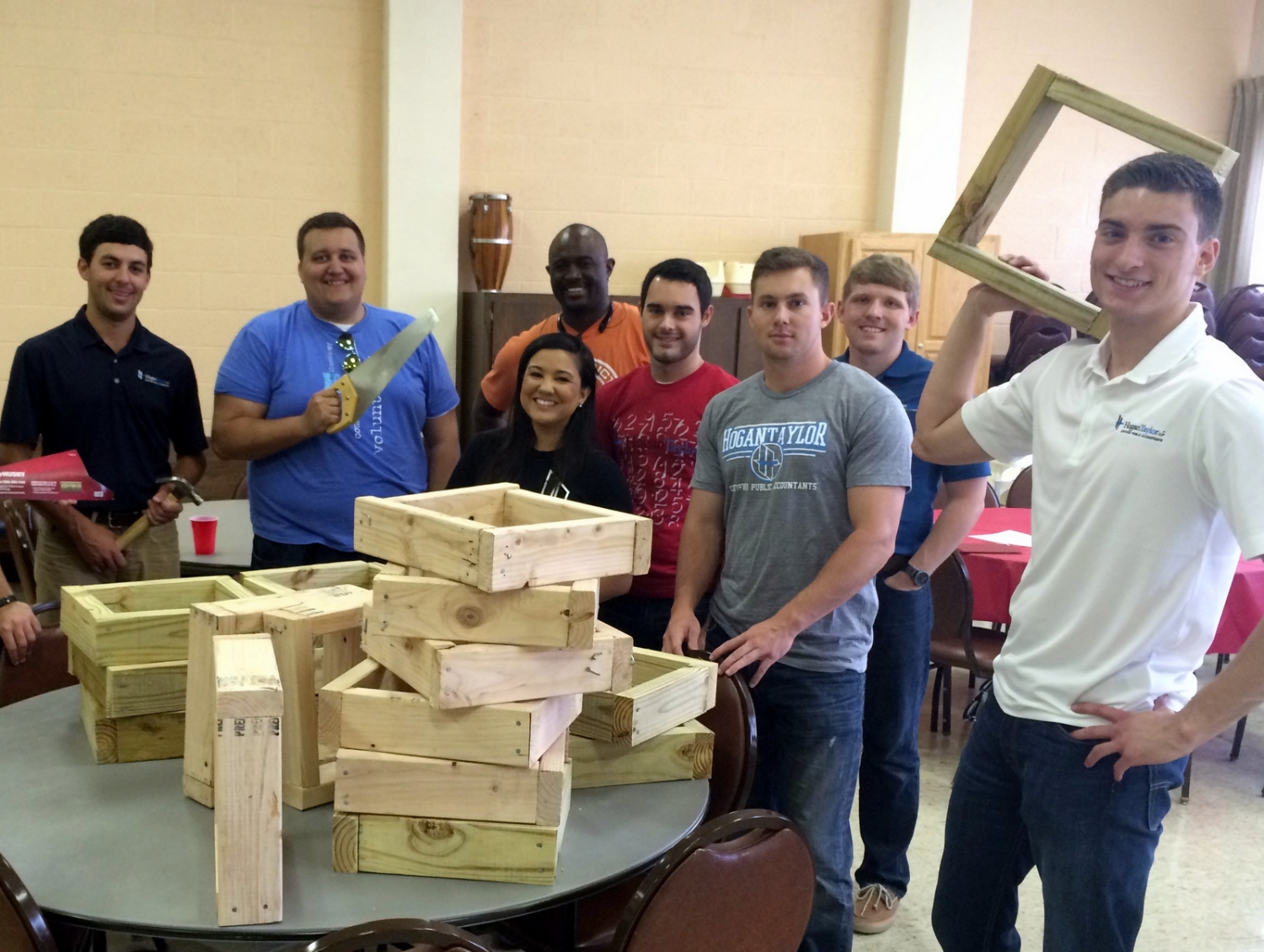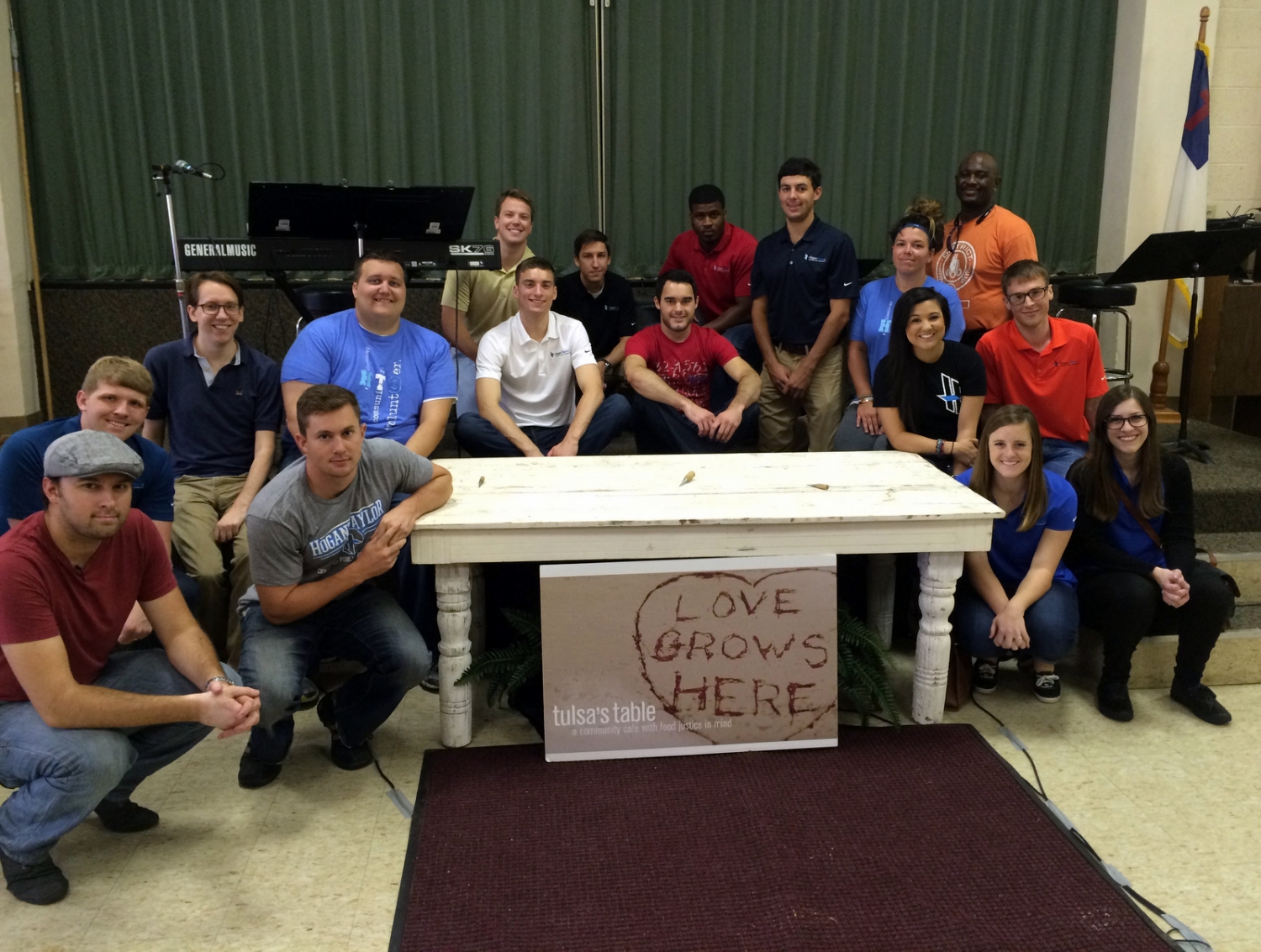StoneSoup Community Venture: A Year-in-Review
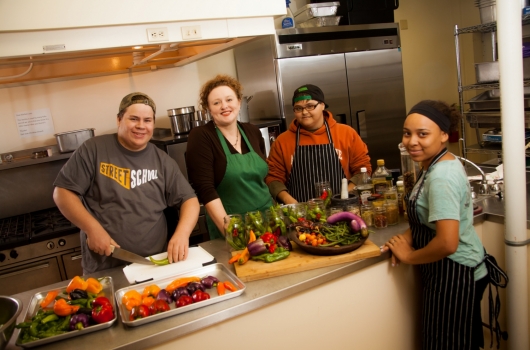 Frances Moore Lappe has aptly stated, “The real cause of hunger is the powerlessness of the poor to access the resources they need to feed themselves.”
Frances Moore Lappe has aptly stated, “The real cause of hunger is the powerlessness of the poor to access the resources they need to feed themselves.”
At StoneSoup Community Venture in Tulsa, Oklahoma, our response to this is evidenced through our mission: To provide enriching seed-to-table educational experiences as solutions to the poverty and hunger that youth living in at-risk communities face each day.
As the founder and CEO, and one who understands the anxiety, humiliation, and fear associated with being hungry, I’ve consistently focused on serving and empowering those in need of food equity. Through Tulsa’s Table programming, we’ve provided pay-what-you-can community cafés and garden and cooking education events over the last year that have exhibited our intentions and brought new opportunities.
Looking Back at 2015
Last spring, we held Story, Soil and Seeds workshops for 100 kindergarten students at Lewis and Clark Elementary, a Title I school. As a follow-up, these students visited Seeds of Hope Community Garden, a StoneSoup partnership with Phillips Theological Seminary (PTS), to engage their hands and minds in a physical garden space, taste fresh, raw vegetables, learn about bees from a local bee-keeper, and snack on locally harvested honey and fresh baked bread. Lots of laughter and surprises arose when cherry tomatoes burst in their mouths or when honeycomb was explored for the first time.
In the summer, youth from First Christian Church, Midwest City, spent two days at Seeds of Hope Garden, constructing raised beds for planting and learning about food insecurity by watching the film A Place at the Table. The youth and their leaders also donated time as volunteers at our pay-what-you-can community café in the Tabbernee Center of PTS, where neighbors from the surrounding at-risk community dined with others from across the city on fresh, healthy food.
We also launched Let Us, a program designed to glean excess vegetables from local gardeners to reduce food waste and increase our capacity to place food on the table at our community cafes. Four local congregations participated, as well as an independent local gardener or two. By the end of summer, we were able to prepare/preserve bushels and baskets of cucumbers and tomatoes for later use.
At two local farmers’ markets, we offered demonstration booths in July and September. There, we provided seed-to-table demos designed to empower shoppers using SNAP benefits. Compostable seed pots were folded and planted with green bean seeds, while sautéed vegetables were cooked on location for tasting. Flyers containing instructions and recipes went home with shoppers. The 75 organic newspaper seed pots given out at each of our booths and 25 spot composting frames to be utilized later were put together by a group of 17 volunteers comprised of staff and interns from HoganTaylor, a local CPA firm, on a separate date at East Side Christian Church.
East Side was also the location of our second café in 2015, as a chef from Tulsa Tech Culinary program prepared the meal while tutoring a student from the Job Corps culinary program. Since then, East Side has been actively working to install upgrades in their commercial kitchen, according to Health Department standards, so that many more of our cafes can be held on location in the coming year. And their generosity extends further, through use of office space and meeting rooms at the church.
Living Faithfully into Another Year of Ministry
This year holds more promise of opportunities to serve youth living in at-risk communities, as we partner with Spot 31, a nonprofit already in mission to the youth of their neighborhood. Through Tulsa’s Table programming, we’ll be developing a food production garden and cooking curriculum based in part on Search Institute Developmental Assets and social emotional learning objectives for youth who have expressed an interest in our programming.
Yet there is so much more to be done. Statistics reveal that 24.1 percent of children under the age of 18 are living below the U.S. poverty line in Oklahoma. The same percentages of children do not know where their next meal is coming from. Food insecurity is a direct indicator of a family’s overall economic status, as well as an experience that leaves many Oklahoma children and youth at risk for educational success and overall well-being.
Given the need, StoneSoup Community Venture is living faithfully into another year of ministry to our community. Hunger and poverty are big issues of our day, but our belief is that everyone has something they can contribute to the answer. Please prayerfully consider what you can offer and join us in our work. Everyone is needed and welcomed at Tulsa’s Table! For more information about our work, please visit tulsastable.org.
The NBA incubates new ministries, supporting social entrepreneurs of faith who are serving their communities in a variety of innovative ways and empowering these Disciples-led health and social service projects to focus on growth, impact, and sustainability. Learn more at nbacares.org/incubate or by contacting Rev. Ayanna Johnson Watkins, Director of the NBA Incubate Initiative, at awatkins@nbacares.org.
